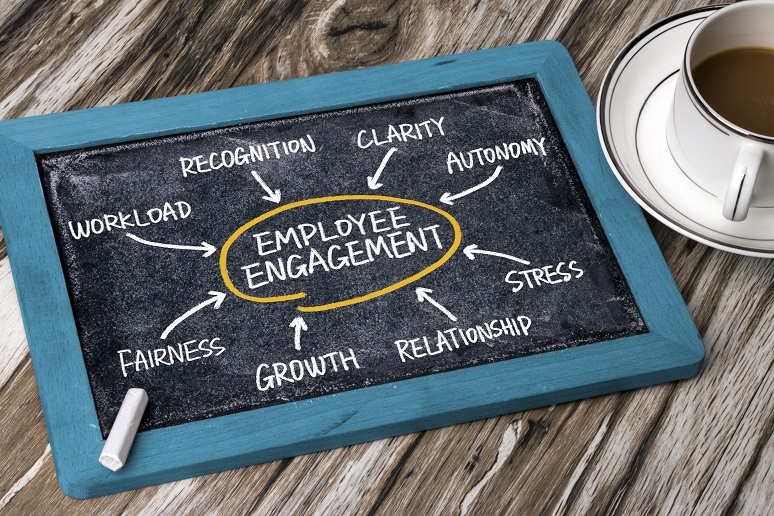Recently, a healthcare contact center asked me to draft its return to work (RTW) policy. I’ve written work from home (WFH) and remote worker policies in the past; however, developing a RTW program that motivates, acknowledges, and engages contact center employees is no simple task. I had hoped to use the results of the organization's employee engagement survey to inform the process but was surprised to learn it halted the annual survey due to the pandemic. It seems to me this organization is missing the value of employee engagement.
To clarify how best to tap the value of employee engagement, I interviewed Dr. Brett Wells, Director of People Analytics at
Perceptyx— a company combining employee surveys with people analytics.
Dr. Brett Wells is a visionary and passionate leader focused on connecting the dots between talent management practices and business outcomes. He serves as a trusted advisor to leaders at Fortune 500 companies and is a recognized thought leader on Forbes Human Resources Council.
This interview has been edited and condensed.
It’s generally agreed that fully engaged employees promote retention of talent, foster customer loyalty, and improve organizational performance and stakeholder value. Why should employers be focused on employee needs and expectations now more than ever?
Dr. Wells: Understanding employee perspectives and experiences has become even more difficult with remote work, distributed teams, and a polarizing backdrop of issues ranging from racial justice to vaccine mandates—all of which can shift employee sentiment in an instant. Employers need continuous insights well beyond those provided by traditional employee survey tools alone.
Perceptyx reported at the start of the pandemic that only 30%of employees wanted to return to work, but that number is steadily dropping. What was behind this shift in workplace preference?
Dr. Wells: Improvements in personal productivity when working from home are strongly and inversely related to the desire to return to the physical workplace. Employees have had the time to create a suitable remote working environment and master its work tools. The combination of the growing experience with remote work and the additional flexibility and resources made available from managers and organizations has increased the percentage of favorable responses.
There’s concern that “officism” (defined as negative attitudes toward employees who choose to work remotely vs. in-office) is one of the biggest challenges of RTW. How do you define officism, and how does it impact RTW?
Dr. Wells: A new brand of location-based discrimination is popping up called officism. Employees who are back in the office full-time harbor ill feelings and negative attitudes toward employees who continue to work remotely instead of returning to the office. In particular, they believe remote employees are less productive, have poorer relationships with managers and colleagues, and are more likely to be overlooked for promotions and career development opportunities. Perhaps what’s most troubling is that officism is strongest at the director level and above – those responsible for crafting the RTW strategy and policies.
As more organizations opt for hybrid work environments, how best should organizations approach RTW?
Dr. Wells: Creating a good work environment pre-pandemic was a challenge—but now that challenge has become much more complex. Organizations must address the crucial needs and environmental factors for employees at every stage of the RTW process and uncover barriers to mitigate risks to health, safety, wellbeing, productivity, and customer experience. It’s necessary to communicate to employees their experience is still a priority and encourage them to raise issues in real-time to mitigate any risks. It’s also important to educate managers and make workplace policies that demonstrate fairness and avoid officism, which poses a real threat to our shifting work environment and the overall employee experience.
I was surprised to learn that some organizations are postponing their annual surveys. Are employee surveys a valuable source of information or just a routine exercise?
Dr. Wells: When done right, employee feedback is the most valuable source of information to guide talent strategies and policies. Survey questions that address the most pressing topics will give you the necessary insights to create the best possible work environment for all employees. Without this data, organizations cannot discover how employees feel about the company, their workload, or how this drives business outcomes. Most importantly, empowering leaders to own and act on their team’s feedback is the quickest and most effective route to demonstrating organizational change.
What are your parting thoughts about employee engagement and RTW?
Dr. Wells: Employees arrive at work as whole people, with concerns about health and well-being, family obligations, connection with the community, stress due to social unrest, and political opinions. Workplace dialogue on each of these issues has traditionally been avoided or discouraged. But thankfully, times are changing. Expectations, experiences, priorities, and needs are shifting—some quite quickly. This opportunity recreates a work experience with a more inclusive and more human feel. As we define new workplace norms, we can make room for the whole person, not only the employee.
Frances is writing on behalf of the SCTC, a premier professional organization for independent consultants. Our consultant members are leaders in the industry, able to provide best of breed professional services in a wide array of technologies. Every consultant member commits annually to a strict Code of Ethics, ensuring they work for the client benefit only and do not receive financial compensation from vendors and service providers.











